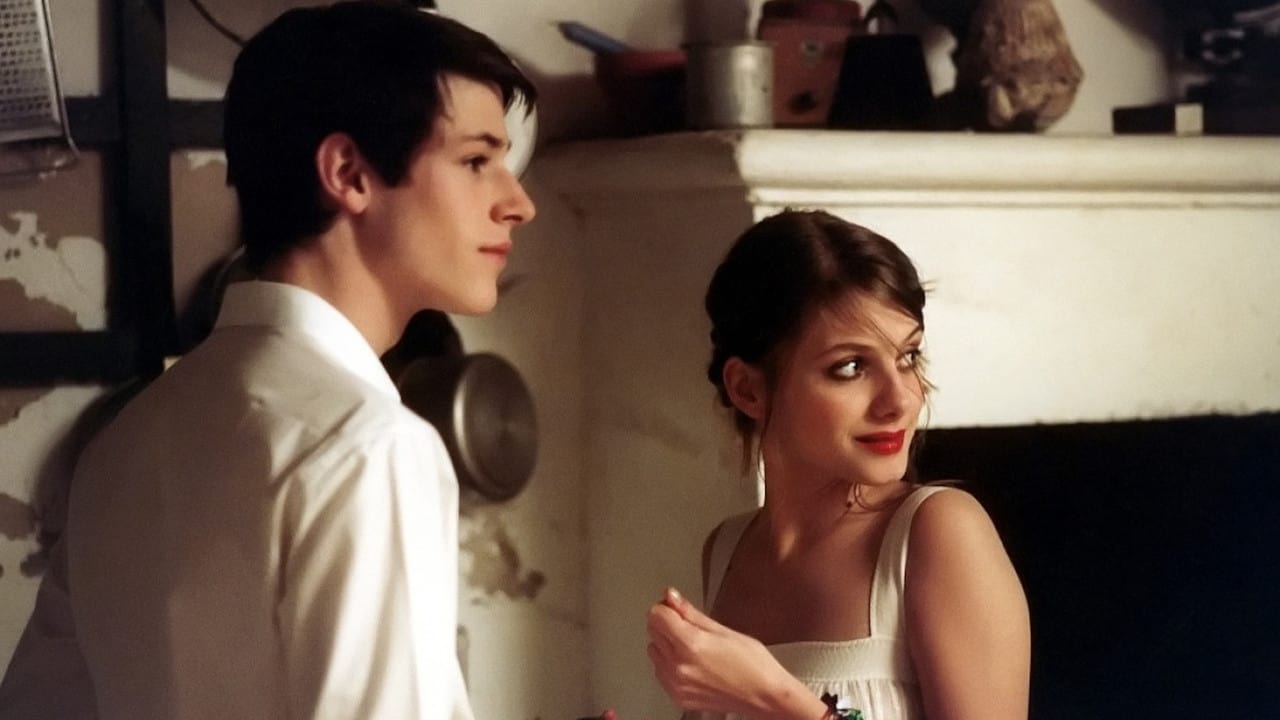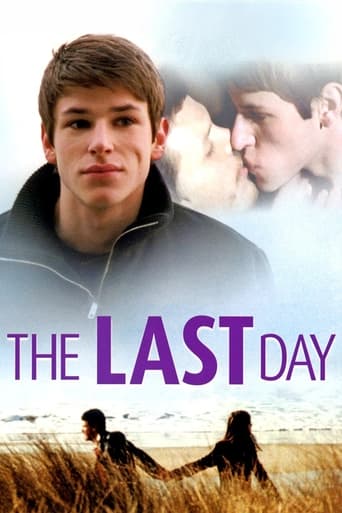TrueJoshNight
Truly Dreadful Film
Solidrariol
Am I Missing Something?
Sexyloutak
Absolutely the worst movie.
Taraparain
Tells a fascinating and unsettling true story, and does so well, without pretending to have all the answers.
leftbanker
The previous reviews make interesting points about this film; most of them plausible and some very perceptive. The following is more an analysis than a review and contains SPOILERS. If you have not viewed the movie and intend to do so, you might want to watch it before reading further. The film is a study in ambiguity – taking that French-film hallmark to a new level – and I do not pretend to have the definitive interpretation of the characters' emotions and actions. But here are my somewhat disjointed, and not entirely original, thoughts.Louise and Simon are both stalkers, of the active and passive types respectively. Sort of yin and yang (initially secret) siblings. Simon is an observer, introverted but not entirely introspective, always looking out at others through a glass (a window or a camera lens). Does the glass distort or clarify his vision? In either case, it separates him from the others - he is emotionally isolated from everyone. In the end, he stops watching and acts, shattering the glass to end the isolation in the only way he can. Simon does not meet Louise by chance on the train - she pursues him, playing on his loneliness, so as to insinuate herself into the family circle (at Christmas, yet). Her motivations remain unclear to me. Apparently she initially wanted to learn more about her half-brother, but her actions seem quite malevolent when she pursues Mathieu even though it is clear that this increases Simon's distress. So I take a darker view of the affection she shows Simon; she seems to be setting him up for his ultimate devastation.While the film gives no incontrovertible proof that Simon has a romantic/sexual interest in Mathieu, many scenes indicate strongly to me that that is the case. Soon after Simon arrives in La Rochelle, he leaves Louise in the car to climb to the top of the lighthouse to seek Mathieu out, and he is obviously disturbed when Louise follows. When the three are together, Simon is continually looking past or around Louise to gaze at Mathieu, and when Louise leaves the bed to make hot chocolate, Simon lies staring at the sleeping Mathieu. Several times Simon alludes to, and tries to rekindle, their past relationship, but Mathieu has moved beyond it (if Simon did not misinterpret it from the beginning). When Simon gratifies himself on Mathieu's bed (where Mathieu and Louise have apparently just made love), intoxicated by the scent of the bedding, he could be assuming the place of either of the two, but the other indications make me think he is supplanting Louise. (Finally, the obvious phallic image of the lighthouse bears some consideration, and I think it bolsters the sexual element of Simon's interest in Mathieu.) When/if I watch the film for a second time, I would pay more attention to Simon's art. It seems that Mathieu has not figured it out – and is probably incapable of doing so. When he mentions the article he saw about Simon's photographs, Mathieu says it was poorly edited and the pictures sloppily presented (unfocused and cropping off parts of the subject). He does not understand what Simon is doing in the photos or in life. When Marie steals a look at Simon's portfolio, she begins to understand the full sense of desolation within Simon. Most of the pictures feature the dunes and coast in the vicinity of the lighthouse. At other points in the film, Simon appears at most of these same places. The pictures are portraits of Mathieu – without Mathieu. (I have not figured out the significance of the first three pictures of the statuette, but assume they relate to Marie herself. I would welcome ideas about those.) Then there are Simon's film clips – mostly blurred, confusing fragments depicting the actions and emotions of those around him – things he is capable of recording but not, it seems, comprehending or accepting.In addition to the homosexual implications of the film, there are strong elements of incest in the relationships between Louise and Simon and Simon and his mother. Simon's final, posthumous commentary speaks to that. Freud would have had fun with those relationships and the images of the father – one false, one absent. Was Simon pushed over the edge by the realization that he has been kicked out of Mathieu's bed by his sister and out of his mother's bed by his (true) father? Now for my review: I give Gaston Ulliel a 10 and the rest of the film a 4, for an average of 7. The film did make me think. I tend to over-analyze things – looking for (and finding) images, symbols, motives and meanings that may be utter figments of my imagination, entirely unintended by the filmmakers. Often that analysis is a somewhat fruitless endeavor, but in this case I think it is exactly what the filmmakers did intend. They provided hints, clues, seemingly random moments (often blurred and fragmentary like Simon's movies) for us to try to comprehend and piece together into a meaningful narrative. Was it worthwhile for me? Under most circumstances, I would not have watched the film to the end. Parts of it really dragged – Simon's endless splashing at night in the swimming pool; the long drives at night on country roads; the stuffed seabird always lurking like the Raven. And, despite Gaspard Ulliel's extraordinary magnetism and acting skill, the almost unremitting and (in my estimation, unexplained) gloom that pervades his character became tedious to the point where the inevitable ending came as a relief, not a shock. I did watch till the end and might watch it again – if only for the glimpses of Ulliel, some of them transcendently beautiful. But if you are not fascinated by Ulliel, many other films are just as thought-provoking and ultimately more rewarding for anyone who is not into angst for angst's sake.
Chris Knipp
Another nice little recent film from France that lacked the wattage to get into American theaters. People will look at it now, because lead actor Gaspard Ulliel's strong presence and savage faun look have made him a star. He has shone in such films as Téchiné's Égarés (Strayed) and the upcoming Hannibal Rising that exploit his wild look, his animalistic air of danger. He is frequently seen as frightening and independent. He is sweet as the boyfriend in A Very Long Engagement, though. The Last Day shows him off better as an actor because here he is almost always on screen, but is allowed to be hesitant, mysterious -- the essence of a film that holds back its meanings and makes us guess what's going on. Simon is delicate, thoughtful and kind, a manchild and a slightly maladroit creature who detaches by filming and photographing the world. In playing Simon, Ulliel reveals admirable restraint. He shows how an actor must use he physical equipment. His looks are striking, but what counts is that he can do such different things with them.Simon (Ulliel) is a young arts student. On the night train to his family's Christmas party he picks up a girl who comes along and then quickly takes up with someone who seems to be Simon's former flame. Simon sleeps with (along side) her, but can't have her. And he's been left out of the know because despite being all of 18 he still isn't aware of something important about himself. Rodolphe Marconi's film is nicely understated, never dwelling on a scene too long, stingy with dialogue and scornful of flashy effects. Ulliel's delicacy is essential to these qualities. So is something inaccessible about him that helps keep his somewhat pathetic situation from ever seeming sentimental. Mélanie Laurent as the girl and Christophe Malavoy as the head of the household help round out an impeccable cast.The Last Day is full of a dry French tact, and escapes being dreary (if only just) by the characters' composure and fortitude. Simon is an athlete (swimming, tennis), but also a good sport in everything--and despite his breathtaking ease in the pool, he has a jerky little walk. What good manners he has! He is always there in deep close-ups, bashful and quiet. Yet we feel his hurt all the more deeply because it isn't acted out. Bruno Todeschini simmers. Nicole Garcia is like a more ravaged Rampling. There's nothing not to like except the ditsy pop songs with English lyrics. Fortunately at a crucial late scene an elegant John Lewis piano solo takes over.
Allendorf
In many respects, I could tell that this movies convey a rather deep meaning and not just ordinary teenage-gay-boy romance story which mostly end up in either bad or happy ending. This movie is alike to many of other French movies that I saw before which contains little or minimal dialogue. It conveys the message through showing "symbolic scenes".However what troubles me the most is not such 'absence of dialogue' but rather the clarity and sense of direction in the film. The love that grow between Simon and Matthew is only evident somehow in the middle of the film but for the rest - it is clearly unclear of what Simon thinks or at least other characters should have played greater role to clarify the role of the main character. As a result of this unclarity - all scenes appear to be just randomly and awkwardly put in.The movie is incredibly slow. There is no significant or notable progression that the audience should be rewarded after watching the film for around 2 hours.Aside from the talented and good looking actor Gaspard Ulliel (who played Simon), there is no other aspects of either in the story or plot that makes me eager to recommend this film to the general audiences.5 out of 10
talltale-1
A wonderfully atmospheric French film, THE LAST DAY details a Christmas holiday with the family of an art student, and the beautiful young woman he encounters on a train, during which lives unravel terribly. Writer/director Rudolphe Marconi is adept at slowly piecing together the story without undue dialog or exposition. His cinematographer, editor and production designer have all contributed to his vision of a beach-side home and environs with a cold, blue palette that will have you wrapping your sweater more tightly. Gaspard Ulliel ("Strayed," "A Very Long Engagement") is compelling as the lead, and the film offers the wonderful Nicole Garcia ("Alias Betty") another strong role in which to shine. A family mystery of sorts, some of the clues may be dropped too soon (we figured things out well in advance), yet due to the fine acting, atmosphere and characterization, the film still pulled us along and left us jolted, moved and chastened. Secrets this important should never be withheld from those you claim to love.

